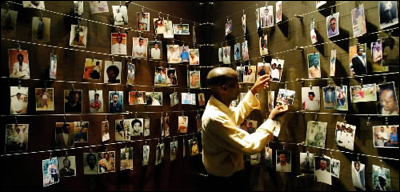Today, I went to hear Dr. James Orbinski speak on a panel about genocide, war and conflict with Dr. Izzeldin Abuelaish and LGen. The Hon. Roméo Dallaire. One of the questions moderator Carol Off asked was how Dr. Orbinski felt treating the wounded who may have been killers or genocidaires and who could, after healing, continue to perpetuate violence. He answered, and I paraphrase, that he is frequently asked this question and does not feel there was any dilemma present because of the underlying principle of his actions as a physician and humanitarian, which was to treat each patient as a human being first, worthy of aid and common decency. The relationship of physician and patient reaches a fundamental place that is inviolate by politics.
It is only now that I have become aware that I have been living with this incredibly subversive idea and how actions derived from this feeling can be truly revolutionary. To experience in action, that every person, regardless of their past, their actions and their wrongdoings, is still a human being that deserves a certain regard.
Sometimes I wonder if the one-on-one encounter holds the most potential for this subversive idea. Perhaps the dyad is where equality may begin – even in relationships that are traditionally structured around a power differential (e.g., teacher and student). It seems to me that there is something unique about a coupling that cannot occur elsewhere. All context falls away and at least temporarily, you are the whole world of the other and the other becomes your whole world. It is no surprize that a frequent desire for a romantic couple is to get away from it all, to escape context, to try to protect the dyadic connection.

